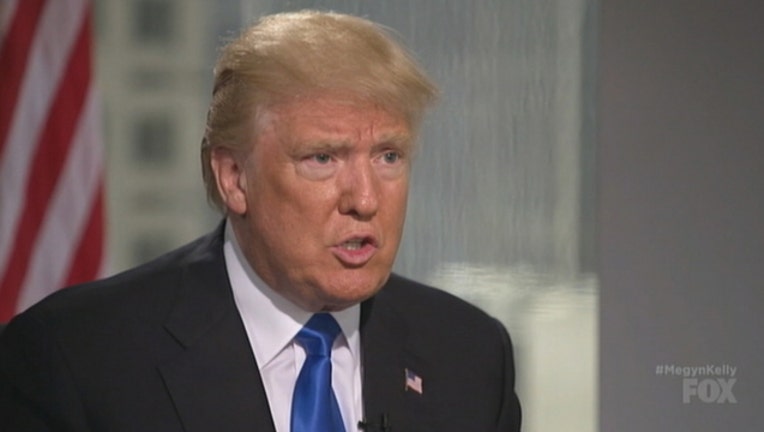Trump gets rock-bottom ratings in international survey

(FOX)
WASHINGTON (AP) — A new multi-nation survey finds that confidence in Donald Trump's ability to manage foreign policy should he become U.S. president is rock-bottom in a host of countries in Europe and Asia.
In seven of 15 countries outside of the U.S. polled by Pew Research Center, Trump's ratings are in the single digits. Large majorities in 11 of the countries have little or no confidence in the prospective Republican presidential nominee ability to manage international affairs. That includes 92 percent of Swedes, 89 percent of Germans and 82 percent of Japanese.
He polls best in China, where there is a split between 40 percent who have no confidence in Trump and 39 percent who do not offer an opinion. Trump, who has advocated trade protectionism and temporarily banning Muslims from entering the United States, records his highest ratings in Europe among supporters of political parties that are anti-immigration or oppose European integration. But even among those poll respondents, his confidence ratings remains below one-third.
The survey, which examines international attitudes toward the U.S., gauged opinions from 20,132 people in Canada, the U.S., 10 nations in Europe and four in the Asia-Pacific between April 4 and May 29.
Hillary Clinton fares much better. A median of 59 percent in Europe have confidence in the Democratic contender — compared with just 9 percent for Trump. She also gets positive marks in Canada, Australia and Japan, although views are mixed in China, where 37 percent say they have confidence in Clinton and 35 percent say they do not.
Pew said that in many of the countries where polling trends were available, views of former secretary of state have improved significantly since 2008 when she was running for the Democratic nomination against Barack Obama. She shows double-digit increases in Japan, Britain, Germany and China.
But her ratings today are still lower than Obama's. In all countries surveyed other than Greece, half or more of those polled express confidence in the U.S. president. That includes more than 80 percent in Sweden, the Netherlands, Germany, France and Australia.
The survey found that the standing of the United States as the world's leading economic power has recovered since the 2008 global financial crisis. As China's once-astronomical growth rates have slowed, the percentage of Europeans naming China as the leading economic power have declined.
China's favorability ratings have also declined since last year in six of the 11 nations where trends are available, Pew said.
The countries surveyed were Canada, the U.S., Sweden, Germany, Netherlands, France, Britain, Spain, Greece, Italy, Poland, Hungary, Australia, Japan, China and India. The margin of error varies among the countries, but ranges between 3.2 and 4.7 percentage points.

